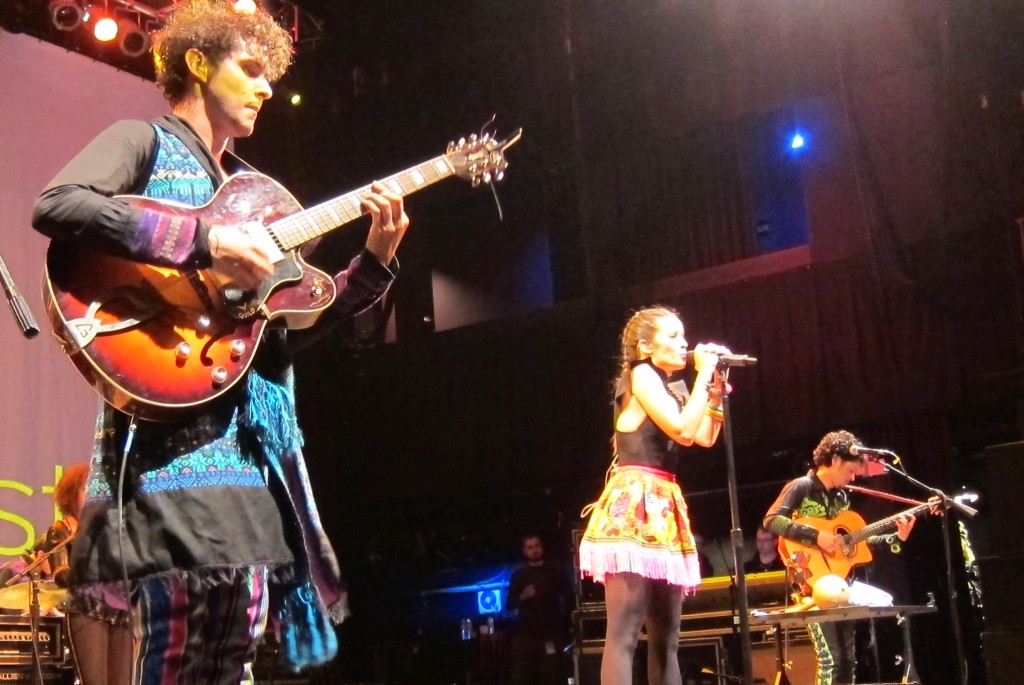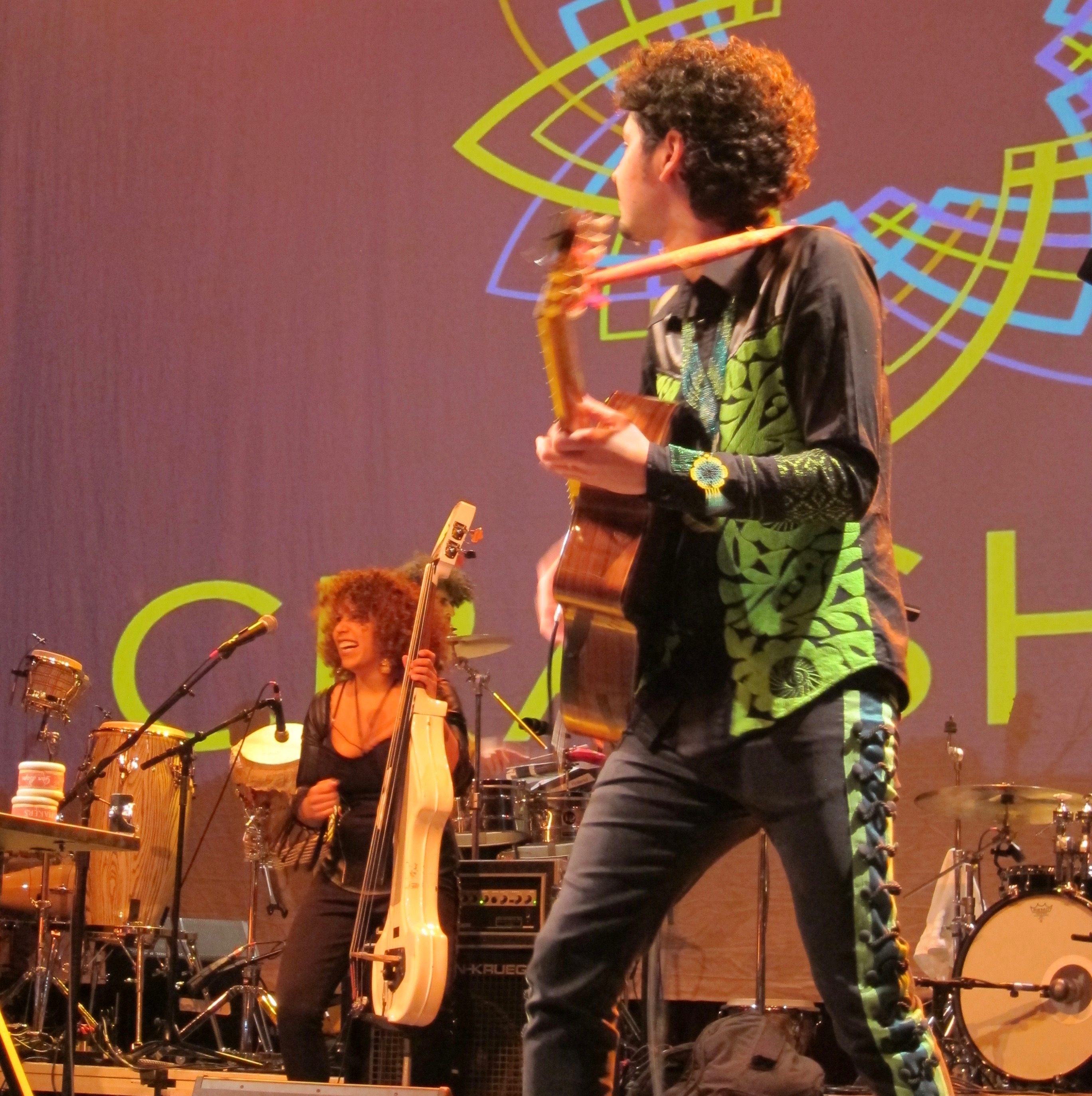Blog January 27, 2016
Monsieur Periné: Musical Chameleons from Colombia
 Monsieur Periné performing at CRASHfest in Boston. (Photos by Ian Coss)
Monsieur Periné performing at CRASHfest in Boston. (Photos by Ian Coss)
You never know what just opening a door can lead to. Santiago Prieto was 12 years old and touring his new music school when the director opened a door to show him a practice room. Inside, a guitar student was playing Pink Floyd, and Prieto—who had enrolled as a classical violinist—said "wow."
The other student was Nicolás Junca, and today the pair—both on guitar now—propels the often-swung rhythms of Monsieur Periné. The Colombian sextet took home a Latin Grammy for Best New Artist in December, and in January set out their first U.S. tour. They even saw snow for the first time—it’s been a big year.










